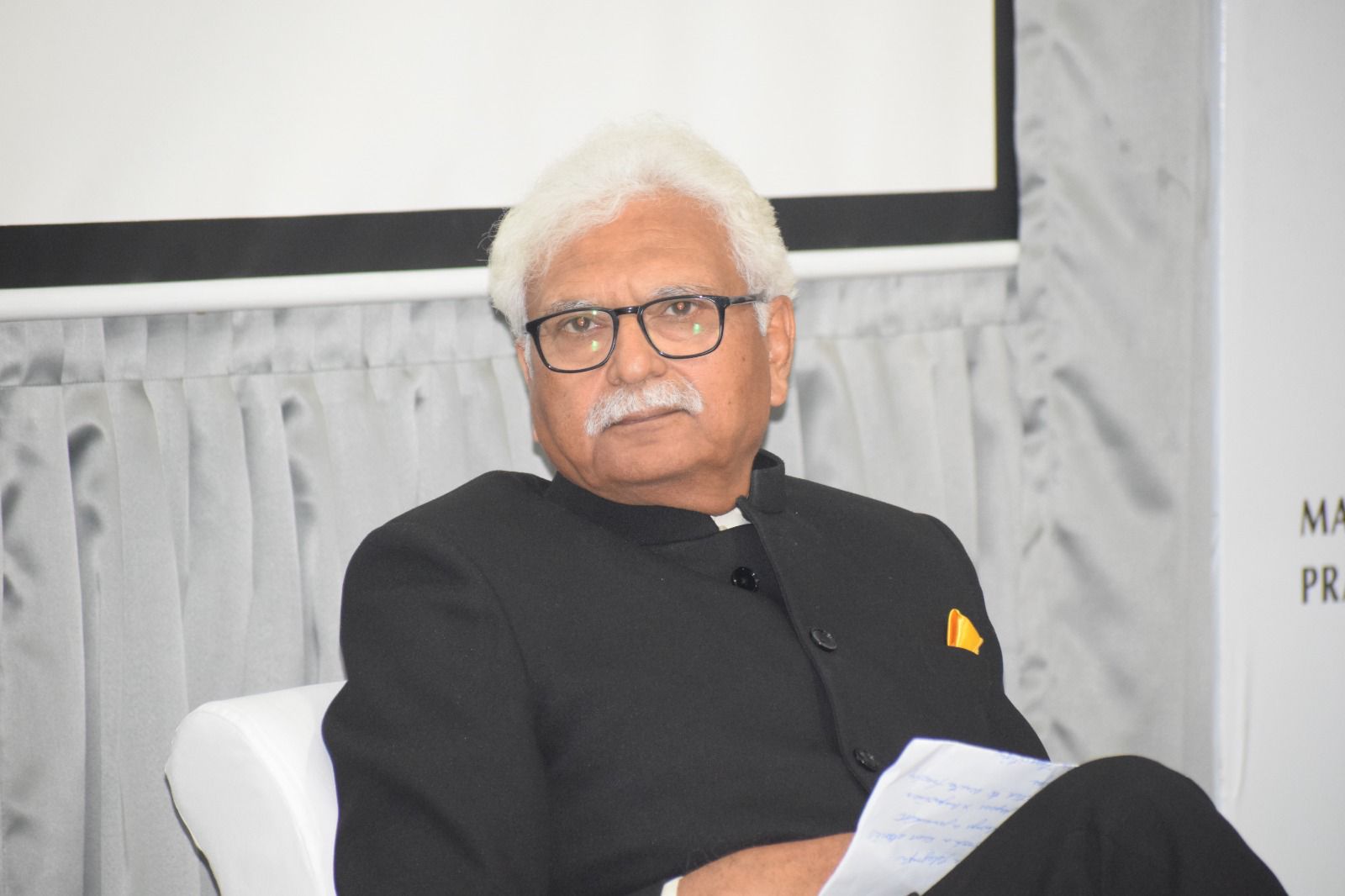Prof Vipin Pubby, a veteran journalist with nearly 45 years of experience in both print and electronic media, transitioned to academia with a vision. After serving as Resident Editor of The Indian Express for close to two decades, he joined Shoolini University as Director of the School of Media and Communications. In this interview, Prof Pubby shares his insights into the evolving landscape of media education and the unique offerings of Shoolini University’s journalism programs.
What prompted you to switch to academics after such a long stint in journalism?
Though I still actively write for newspapers, magazines, and appear on TV and digital media shows, transitioning to academia felt like a natural next step. During my years of recruiting young journalists, I noticed a significant gap in practical journalism skills among graduates from media institutions. This inspired me to train future journalists and mass media professionals to better meet industry demands.
When did Shoolini University introduce journalism and media courses and which courses are available?
Shoolini University introduced its undergraduate program in journalism and mass media six to seven years ago. This three-year course covers various media fields, including print, electronic, and digital mediums. This year, we added specialisations in Public Relations, Events Management, and Advertising. The two-year postgraduate course was launched three to four years ago, and we also offer a PhD program for students pursuing advanced research in media studies.
What’s the USP of the School of Media and Communications? How is it different from other media schools?
Our School of Media and Communications stands out for its strong emphasis on the practical aspects of mass media. Experienced professionals from various media fields teach our students, sharing their specialised knowledge and expertise. With around 45 years of experience, I bring insights from journalism, while our faculty includes a communications expert in Public Relations and Corporate Communications with similar experience. We also have a former RJ from a leading radio station heading Radio Shoolini and a professional with over 15 years of experience in top TV channels offering practical tips to students.
We don’t neglect academics either; our faculty members have extensive experience teaching various aspects of media. This combination ensures our students receive a perfect blend of practical skills and sound academic knowledge, preparing them comprehensively for their careers in media.
How do you teach practical journalism to students since you are not based in a major city?
We provide hands-on training to students in various fields. For instance, we produce the Shoolini Newsletter, replicating a standard broadsheet complete with eight-column displays, editing, designing, and production in newsprint. This newsletter is circulated in several parts of the state, in addition to the campus itself. We also publish a Hindi version called Shoolini Patrika.
Our weekly YouTube bulletins, Shoolini TV Bulletin in English and Shoolini Samwad in Hindi, offer further practical experience. The Bulletin has been consistently produced for 216 weeks, while Samwad has over 180 editions without a single break. For radio, we produce daily programs, ensuring students gain comprehensive experience across multiple media platforms.
From which regions do you get students for the School of Media and Communications?
We attract students from practically every region of the country. Our diverse student body includes individuals from the North East, West Bengal, Tamil Nadu, Kerala, Karnataka, and Maharashtra. We also have a significant number of students from Himachal Pradesh, Punjab, Haryana, and Jammu and Kashmir. This year, we are excited to welcome an international student to our new batch, further enriching our multicultural environment.
How do you teach students about avoiding fake news?
One of the biggest dangers posed by social media is the prevalence of fake news. People often share news without fact-checking, leading to false rumours and serious consequences. With the advent of new technologies, deep fakes present another significant threat. Therefore, we emphasise the importance of verifying information. We teach students to check, cross-check, and re-check every news they come across, ensuring they never publish unverified information. This rigorous approach helps them develop the critical skills to maintain journalistic integrity in the digital age.
What about internships or job prospects for students of Media and Mass Communications?
We actively support our students in securing internships and jobs with various media outlets. These include The Indian Express, Hindustan Times, Times of India, Dainik Bhaskar, Punjab Kesri, Amar Ujala, Navodya Times, ABP News, India TV, Aaj Tak, CNN News18, News TV, and PTC, among many leading digital media channels. Our alumni have successfully leveraged the practical experience gained at the university to excel in their careers.
What are the biggest challenges and trends for the future of journalism and mass media?
As the world accelerates, the demand for quick and accurate news will only increase. With the rise of social media and countless unverified “news channels”, credible news sources are becoming increasingly important. This creates a high demand for trained media professionals who can deliver news quickly and accurately.
Additionally, the future holds significant opportunities in digital media, with specialisation becoming the buzzword. Fields such as Public Relations, Corporate Communications, and Events Management will see increased demand for skilled professionals. Those specialising in video editing, special effects, and filmmaking will also find ample opportunities.
The key to success for future media professionals will be developing a well-rounded personality with the right attitude and skills.
Pawan Kalyan
